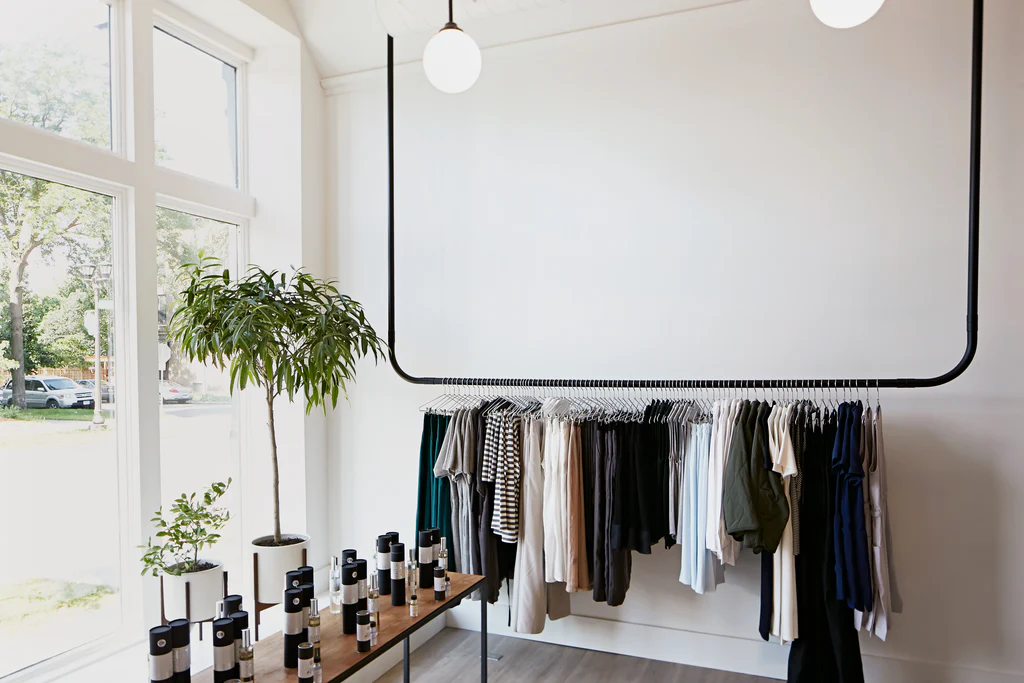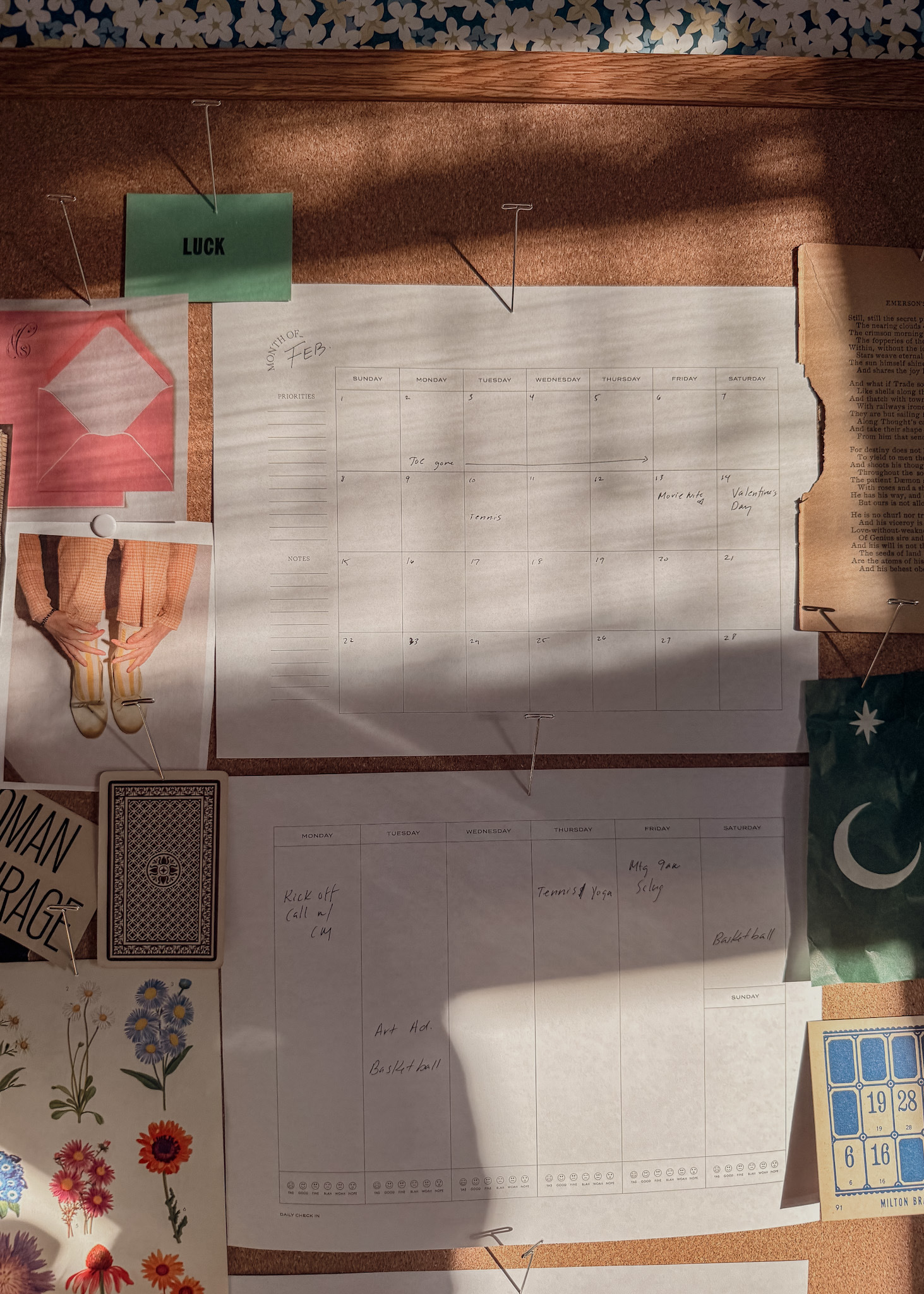We Asked an Expert – Is Our Unhealthy Obsession with Smartphones Affecting Our Relationships?


No, I’m not one of those people. I’m not a tech-basher, tech nay-sayer, nor am I an “oh-my-gawd-tech-is-ruining-an-entire-generation!” kind of gal. Yes, I’m in love with my Apple Watch, upgraded to iPhone X within moments of its release, and am probably an over-sharer on FB, Insta, and SnapChat (thanks for the feedback, kids).
But what I also am—as a social scientist who studies relationships, and more recently one who has turned my attention to precisely what the love affair with our smartphones is doing to human relationships—is a bit concerned.
Why? Because, dear friends, the research is starting to pile up. And the ever-growing mountain of data coming from some of the smartest and most well-respected researchers at the universities probably too many of us dream (hope, pray) our kids might get into some day: it’s starting to point to a reality that—gulp, and self-disclosure warning here—I’m struggling significantly with too. It’s a reality of a rather profound and disturbing affection—yes, affection—many of us have for our beloved smartphones.
It’s both a convenient and inconvenient love—one that’s sort of hard to admit, amiright? Because once we fully and honestly admit it we are a micro-step closer to being obligated to actually do something about it. (Scary, I know. I’m deep in that same awakening.)
And it’s a reality perhaps best captured in a single question I’ve started asking the college students I teach, my own two beautiful babies (“babies” = one is 18, the other 21), and anyone who will listen. Unfortunately, it’s a no-longer-purely-rhetorical question, and one I’m frequently asking myself—when not distracted by the comments or lack-thereof to my quite-hilarious, if I can say so myself, time-lapse FB videos of me going about my daily nonsense and posts of, well, my daily nonsense.
The question: With whom do we really want to have your closest relationship: a human or a device?
Easy answer!
“Our smartphones are so fabulous and hard to resist we even use them at funerals.”
Or is it? Do your daily and hourly behaviors – if you get really honest – reflect uninterrupted, high-quality, all-in, face-to-face time spent mostly in life-giving, relationship-building, perfectly messy conversations with other humans? Or do those behaviors in your days and hours reflect a majority of time and attention spent with and to a glowing screen?
They’re hard to resist, right? Those little life-changing mini-computers we carry around in our pockets and purses and almost never turn off. Oh, and sleep with. And literally, touch within seconds of waking—and sometimes even when we’re not awake. The dangers of half-asleep-texting are real. Those little digital friends we turn to when we feel alone (scariest hashtag I’ve ever come across: #IFeelAloneITouchMyPhone): we often speak of them (the devices, that is) using prose like “love” “euphoria” “can’t live without”—the type of language typically reserved for the actual living, breathing humans we adore. You know, our actual children, spouses, family members, and furry four-legged friends. Did you know that marriage and family therapists have needed to start treating digital devices as “members” of the family? Not fake news, folks.
Yes, yes, I know—our smartphones are so fabulous and hard to resist we even use them at funerals. Yep, we have research on that too, the fact that a lot of people admit to texting during funerals. But (sarcasm warning here), according to ethnographer and MIT researcher Dr. Sherry Turkle who observed and studied this phenomenon, don’t worry: People only do it during the “boring bits.” Indeed, you read that correctly. When a funeral gets boring people admit they turn to their smartphones. (Do I insert a confused face emoji or sad/crying face emoji or angry face emoji here? Pretty sure all three are warranted.)


And don’t get me wrong nor throw objects at this post. I agree: Technology saves lives! And makes life easier. Sparks countless moments of creativity! Is essential for running our businesses. And I mean, hey, the joy and mindless FUN it can bring: #CandyCrush #Netflix. Also, it connects us with family across continents and time zones. Allows for organizing life on the small-scale (“Honey, can u pick up kids plz?”) and the mass-scale (enter the #metoo movement). This is the time to review my opening statement; I’m in no way anti-tech. What I am for sure, in the words of one of my favorite researchers (Turkle again), is pro-relationships. Which is why when I start to see the sometimes shocking, deeply concerning ways that smartphones, in particular, are impacting our human relationships, I have to know more. And write more. And share/speak more—even if it irritates people (and causes a deep angst in my own soul, because did I mention how much I love my iPhone X?! Especially the camera—because what if suddenly another cute dog or spouse or kid moment arises?).
What is worrying and concerning me most, given the current state of the evidence? Four things, if you forced me to choose: Empathy (hint: it’s disintegrating rapidly). Self-reflection (there’s less of it nowadays, thanks to the digital umbilical cord. And without solitude and self-reflection, how do we bring our best selves to our relationships? Spoiler: We don’t). Conversation (it’s the cure—when we actually opt-in and do more of it. Like with our voices and in person). And, addiction (as in what tech is doing to our brains and behaviors. Scary stuff). Speaking of, since research also shows our human attention spans are about eight seconds, I’m going to expand below on just two of those four, then plan to tackle the other two in an upcoming post. Sound good?
Let’s start with the most human of all behaviors: empathy.
“Over the past 20 years, there has been a 40% decrease in empathy among young adults.”
Empathy Matters
Brace yourselves, because the news on the topic is a bit troubling. And it seems that smartphones might be implicated in at least some of the rather rapid decreases in our abilities to – or is it simply a willingness to? – empathize with each other.
How so, exactly?
Well, let’s start here: Over the past 20 years, there has been a 40% decrease in empathy among young adults. And while the researchers responsible for discovering these trends can’t know with 100% certainty the precise cause of the dramatic downward slide in our empathic abilities, other studies examining the impact of our beloved devices on even our most mundane conversations (and empathic tendencies) gives us some fascinating clues.
For instance, of all the research I’ve read and reviewed, the one that has most significantly changed my own behavior – and my family’s, perhaps much to their chagrin – is the one where the social scientists found that when even a single cell phone was on the table between two people in conversation (even if it was turned off and/or turned over so the screen wasn’t visible), it reduced the likelihood of empathy expressions in that conversation. And for the people in conversation where no beloved digital device was anywhere in sight? Yep—they reported feeling higher levels of empathic concern from their conversational partners! Wowza.
But why?
And how can just a physical presence of a powered-down/turned over smartphone reduce the emotional presence and caring response of two friends or colleagues or sisters in conversation?
Think about it like Dr. Sherry Turkle (yep, her again) does and describes in her book Reclaiming Conversation. (P.S. This book is what I call the “game changer”—one I wish I could assign as required reading for every human over the age of 12. Would you open up a paper-copy of the novel you’re currently reading in the midst of a friend telling you about a recent break-up and with pointer finger raised slightly utter “hold on for a second, I just need to finish this chapter.” Of course not. But with phones on the table at dinner and in between us as we’re having coffee with our best friend or spouse or mother or sister, we’ve been socialized to know we are likely to get interrupted. “Sorry, just have to check this quickly.” And if we’re likely to get interrupted anyway, why even start a conversation that demands and deserves the other person’s attention? One that hungers for another’s empathic response?
Also (and yes, this will require your empathy): Think about what it says to someone else when you pause a conversation to just “check a quick text.” Or to your toddler who is looking at you for feedback on the blocks she just stacked ankle-high but your face is aglow with just a quick check of the comments on your Instagram post of your cute kid playing quietly and perfectly with cute blocks. Or to your spouse who is off-loading the necessary stress of the day when you look away for just 20 seconds because “it’s a quick work text. Just a second.”
What those pauses say to all of those people: “Something else is more important than you.”
Ouch.
And, yes, you’re likely starting to argue with me in your head, even just a bit: “But he …” and “But she …” and “I try, but …”
I know all the arguments because I’m a low-key pro at making them. The same justifications. The similar rationalizations—each one explaining away in my own self-narrative why it’s okay and natural and expected and just the realities of life in the digital age!
Well, here’s the deal: No matter how we justify it, it’s the message we send to those beloved humans in our lives. Over. And over. Again and again. When we put our phones and screens and social media checks in between us and others we are – even in small ways – saying the person in front of us isn’t as significant.
We’re saying they aren’t as important. Aren’t as engaging or worthy—at least at that moment.
And the research is starting to make clear that despite what those living/breathing humans might tell us (or not) in those moments, they are feeling devalued by the phones in our hands. In a recent study, for instance, people who felt their partners are overly dependent on their smartphones were less happy in their relationship and were, in fact, jealous OF their partner’s smartphone. Yes, a person can feel a strong negative emotion toward a small rectangular piece of metal and plastic.
Surprising?
Not really, when you think about this fact: at the core of being perfectly and imperfectly human is simply a desire to be cared for, valued and loved—especially by those who claim to like us most.
“Social scientists found that when even a single cell phone was on the table between two people in conversation, it reduced the likelihood of empathy expressions in that conversation. And for the people in conversation where no beloved digital device was anywhere in sight? They reported feeling higher levels of empathic concern from their conversational partners.”
And at the center of it all is this truth: A failure of empathy and attention is a failure of living well. A failure of seeing other humans with all the generosity we hope others use when seeing or judging us—especially when we screw up. And/or when we’re not at our best. And even when we are at our best. Empathy is also something that is learned, over time, one interaction at a time.
Dang it, if only there was an empathy App! (insert sarcastic face emoji)


Our phones, they’re just so irresistible
Ah yes, sooooo irresistible in fact the question has to be asked: Are we actually addicted to our phones? Maybe that’s why it’s just so tempting to take that quick peek and so darn nearly-impossible for most of us separate from our little lovely devices—leaving them in our bags and purses, even for just an hour during dinner?
While the jury is out on the smartphone addiction question, in my reading of the work to-date – some of my favorite in Dr. Adam Alter’s book Irresistible: The Rise of Addictive Technology and the Business of Keeping us Hooked – we’re getting closer to having enough evidence to reach a verdict.
A friend recently saw me reading Irresistible and asked if I’d summarize the key findings in a sentence or two. Oh my, tall order. But I tried. And will again here: Behavior addiction is real. A behavior becomes addictive only if the reward it gives you now is eventually outdone by the negative consequences it brings you later. And, yes, the tech companies and App-makers know exactly how to design their goods to get and keep us hooked – so we keep coming back for more (and they make more $$, of course).
Need an example?
Take the simple “thumbs up” and “heart” buttons sitting right below your most recent Facebook post. Innocent as a little “like” or “heart” seems here or there, enter the neuroscientists who explain how not-at-all innocent those little happiness-causing bursts of likes and hearts are—each one lighting up the same reward center in your brain as that of a heroin addict or alcoholic lights up when they get a hit of the needle or bottle. The reward? It’s called dopamine—the same exact chemical (although in a lesser amount) keeping drug addicts using. Keeping alcoholics with that handy bottle of vodka in the drawer. That little burst … that little hit … that little dose of purrrrre pleasure is so brief, yet it causes us to return to the social media App time and again. And then again. And …
Because I mean hey, it feels realllllll gooooood to see that my post with the pic of my adorable 5.5 lb dog Fred lying prone in front of the fireplace during the epic snowstorm of April 2018 received 167 likes and 89 hearts. Awwww! He IS adorable, isn’t he? Dopamine released. Brain is smiling. I want MORE of where that feeling came from! And Carol continues to love and feed her FB habit.
All of those little rewards: it’s like a bottomless cup of the tastiest social feedback. Figuratively speaking, when our smartphone is the physical source for even a fleeting physiological/neurological high at any moment, why wouldn’t we want to touch it, interact with it, and be with it as often as we can day in and day out (and sometimes even in the middle of the night). See how it works? A brain on dopamine is a brain that feels gooooooood.
And we humans? We’re really quite simple. We like feeling good.
Given that so many of the ways we use our smartphones do make us feel pretty good, it’s not surprising then that according to Pew Research, approximately 46% of people say they “couldn’t live” without their smartphone. Do they really mean they’d rather die if suddenly iPhones suddenly disappeared from this great green earth? Probably not. But, they surely would feel significant anxiety, withdrawal, and mourn the loss of something they love so much (yes, we have research on that fact too).
According to Dr. Alter, in 2015 there were 280 million smartphone addicts—a large enough group of people that he explains: If they were all came together to form a country they’d be the fourth largest in the world behind China, India and the U.S.! Would you be a resident of that new land?
I probably would.
Honey, sorry, I’m moving to iLand with my new partner. Her name is Alexa. She’s a great listener. Tell the kids I’ll miss them…
“According to Dr. Alter, in 2015 there were 280 million smartphone addicts—a large enough group of people that he explains: If they were all came together to form a country they’d be the fourth largest in the world behind China, India and the U.S.!”
But seriously, what I think is more important than the numbers on the tech-addiction question is what the percentages suggest: that we have a growing problem in our world, one to which all of us who rely on our smartphones for pretty much everything are, well, highly susceptible.
Sure, attention spans have diminished from approximately 13 seconds in 2000 to less than eight seconds currently. And yes, nearly ¾ of us admit we reach for our phones when we’re “bored” or when nothing else is going on. And, oh my, 7 in 10 of us admit to actively engaging in social media or taking selfies while driving. And, okay, many of us attend to our digital devices upwards of 150 times a day—even if it’s just a momentary touch to make sure it hasn’t fallen out of our pocket, or a quick glance to see if our boss has called or our Rx is ready for pick up. Oh, and then there’s this: A 2016 survey found that 1 in 10 adults admit to checking their phones during (yes, DURING) sex. Yikes.
It’s not any one of those single acts that is in and of itself a problem (okay, the driving-texting-selfie-taking thing – that’s a BIG problem. Stop it!). But add all the rest of it up and maybe it warrants a personal wake-up call? I mean, whoa: “Just a quick peek at Instagram” x 19 times a day x 6 days a week x 4 weeks a month x your next 5 years of life = _________ (you fill in the blank).
If Dr. Jean Twenge, expert and author on these topics—also a professor of psychology at San Diego State University—filled in that blank, I’m thinking she might write “yikes.” Then she’d quickly refer you to her research on our highly-connected selves and how many of us talk about our phones using the same words addicts talk about crack. “I know I shouldn’t (check my phone in the middle of the night) but I just can’t help it.”
Yep, yikes.
Most concerning to me is when we think about how many moments in each day we are missing the eye-contact of other people, and thus missing even a micro-momentary chance for human connection. And missing out on the life-giving, stress-reducing interactions with the people around us who (like our kids, our dogs, our colleagues, our friends) need us and whom we also need. But with our eyes down and our faces aglow, how will we know? And what will we see when we finally look up?
Yikes.


Must we really break up, for good?
I don’t have the final answer. And am still seriously pondering the question myself. Like I said: The jury? It’s still weighing all the evidence—and I’ll keep sitting on the edge of my research-hungry courtroom seat as the findings continue to be presented.
For now, I have to admit I’m getting evermore intrigued by the in-depth testimonies of those who have actually and fully broken up with their smartphones.
Like Jenna Woginrich—author, designer, and cellphone-free human being. Could I be as brave as her? And as “rich” (her words) as she says she is in her post-smartphone-ownership life. The process is one she details in a recent Guardian article—that of developing a new relationship with a landline and the outcomes of becoming cell-free:
“I didn’t get rid of it for some hipster-inspired luddite ideal or because I couldn’t afford it. I cut myself off because my life is better without a cellphone. I’m less distracted and less accessible, two things I didn’t realize were far more important than instantly knowing how many movies Kevin Kline’s been in since 2010 at a moment’s notice. I can’t be bothered unless I choose to be. It makes a woman feel rich.” – Jenna Woginrich
I didn’t get rid of it for some hipster-inspired luddite ideal or because I couldn’t afford it. I cut myself off because my life is better without a cellphone. I’m less distracted and less accessible, two things I didn’t realize were far more important than instantly knowing how many movies Kevin Kline’s been in since 2010 at a moment’s notice. I can’t be bothered unless I choose to be. It makes a woman feel rich.
Okay, wow. This Jenna person (I don’t know her, but would like to): She says she opted out of mobile phone life out while reminding us (readers and her friends, clients, loved ones) there are still a dozen+ ways to reach her between e-mail and social media. No, she hasn’t gone completely tech-free; she does own and use a computer. But, in her most-convincing testimony, explaining the greatest upside of being “clean” (from cell-addiction) for a year and a half now: “I’m no longer scared of my own thoughts.”
Ah, yes. Quietness and self-reflection (the topic of a future post, promise).
Until then, maybe just choose a single afternoon of smartphone-free living? I’m going to give it a try—tomorrow. (Yikes!)
–


Carol Bruess (last name rhymes with “peace”) is professor emeritus at the University of St. Thomas, Minnesota, studying and writing about relationships. She is highly fluent in emoji, loves parentheticals (I mean, it’s what all the cool kids are doing), and is happy-dancing her way through empty-nesting (although don’t tell her kids; they think she’s all weepy). Check out her books, TEDx talk “Are All Relationships Messy?” and her sewing/design shenanigans over at www.carolbruess.com.
BY Carol Bruess - April 20, 2018
Most-read posts:
Did you know W&D now has a resource library of Printable Art, Templates, Freebies, and more?
take me there
Get Our Best W&D Resources
for designing a life well-lived




Thank you for being here. For being open to enjoying life’s simple pleasures and looking inward to understand yourself, your neighbors, and your fellow humans! I’m looking forward to chatting with you.
Hi, I'm Kate. Welcome to my happy place.


















I’m not going to lie – this obsession with smartphones and social media seems to have sailed over my head. I got my first smartphone last year and it’s a cheap model (small) model that I don’t really feel any necessity to upgrade. Maybe if it breaks. Maybe. I’m not even sure I’ll miss it. And I wonder if this is a run-off of my introvert nature – I don’t want to spend my precious time being drained by other people in person, why would I do that to myself on the internet too? I get (maybe) three text messages… Read more »
Thanks for your comments, Michaela! Sounds like you have a very healthy balance in your life, something for which more of us strive … and perhaps more of us can achieve if we “un-drained” ourselves from all the distractions.
I’ve been cell-free for almost 2 years now, and I absolutely LOVE it. I’ve read 25 books a year, and when I’m out I’m not tempted to zone out and look at it, and the anxiety that used to follow me is no longer there. I think my friends/family are starting to balk and feel inconvenienced by their inability to reach me right away, but no one has said anything so far. I know I can’t remain cell-free forever; it’s irresponsible not to have one when I’m driving (I’m in Socal – so driving consumes my life), and I often… Read more »
M – I’m 1000% impressed!! And your comment about your mind feeling free and clear? We’ve got science to tell you why, indeed, being cell-free is great for a focussed, uncluttered brain too. Keep on being your productive, less anxious self! My prediction (I’m an optimist) is the rest of us will catch up (some day) as we reduce (some how) our all-day/every-minute relationship with our little digital friends.
gtunes
I’m definitely addicted and distracted. Like reading this great article right now, when it was not on the list of things I needed to take care of, but it is lovely to hear from you Carol.
Jenny, ah so true! (But/and: I find that reading any Wit & Delight post is worth the delightful distraction #wink.) Thanks for your comment. It’s lovely to hear from YOU. (insert heart emoji)
This is so beautifully written and expressed with research and analysis – I love it! I think it’s hard to deny that smart devices like phones, tablets, and laptops – whatever we personally use most – affect our relationships because we mediate greater and greater portions of our lives through these devices. We consider how “sharable” or “Instagrammable” aspects of our lives are, sometimes before considering the reality separate from that digital mediation. It’s how we represent ourselves to each other, and how we validate ourselves. Healthy? That’s debatable – but I think awareness goes a long way to creating… Read more »